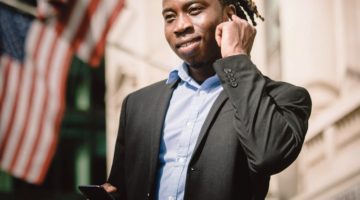Washington (AP) – In a victory for people falsely accused by police of crimes, the Supreme Court removed a barrier Monday to lawsuits against law enforcement for malicious prosecution. The 6-3 ruling means that some malicious prosecution lawsuits that had previously been thrown out at an early stage will instead be allowed to move forward. The ruling was joined by both liberal and conservative justices.
Justice Brett Kavanaugh wrote for the majority of the court that a person seeking to sue for malicious prosecution under a federal civil rights law has to prove that the case brought against him “ended without a conviction.” The justices rejected a higher bar that federal appeals courts in much of the country had adopted that said the person had to show their case ended because they were innocent.
Justice Samuel Alito wrote in a dissent that his colleagues’ decision “has no basis in the Constitution and is almost certain to lead to confusion.” He was joined by two other conservative justices, Justice Clarence Thomas and Justice Neil Gorsuch.
The case before the justices involved t. he 2014 arrest of Brooklyn resident Larry Thompson who sued for malicious prosecution after charges against him resulting from a scuffle with police were dropped.
Lower courts ruled against Thompson saying it wasn’t enough that the case against him ended without a conviction. They said he had to show it ended with “affirmative indications of innocence” such as an acquittal or a dismissal by a judge along with a statement that the evidence was insufficient. The Supreme Court disagreed.
Thompson’s lawyer Amir Ali of the MacArthur Justice Center said in an interview he was “very pleased with the court’s decision” and that it was “welcome and needed.” Ali said that prior to the court’s decision there was a “completely unjust and really senseless barrier to bringing these lawsuits” and that the court had “removed that unjust barrier.” Ali said his client will now “have his day in court” and get the opportunity to prove his malicious prosecution claim.
The case against Thompson began when authorities were called to his apartment. Thompson’s sister-in-law, whom Thompson’s lawyers said has “cognitive delays,” called 911 to report Thompson was sexually abusing his infant daughter. Initially two EMTs arrived and Thompson, not knowing his sister-in-law had called, told them they had the wrong apartment.
After the EMTs left, police officers arrived and Thompson refused to let them in without a warrant. After a scuffle, Thompson was arrested and charged with resisting arrest and obstructing governmental administration. He was held two days, but the charges against him were dropped. The baby was examined at the hospital and no evidence of abuse was found, only diaper rash. Thompson’s lawsuit followed.
The Biden administration had urged the court to side with Thompson as did the American Civil Liberties Union and NAACP, among other organizations.













No Comment